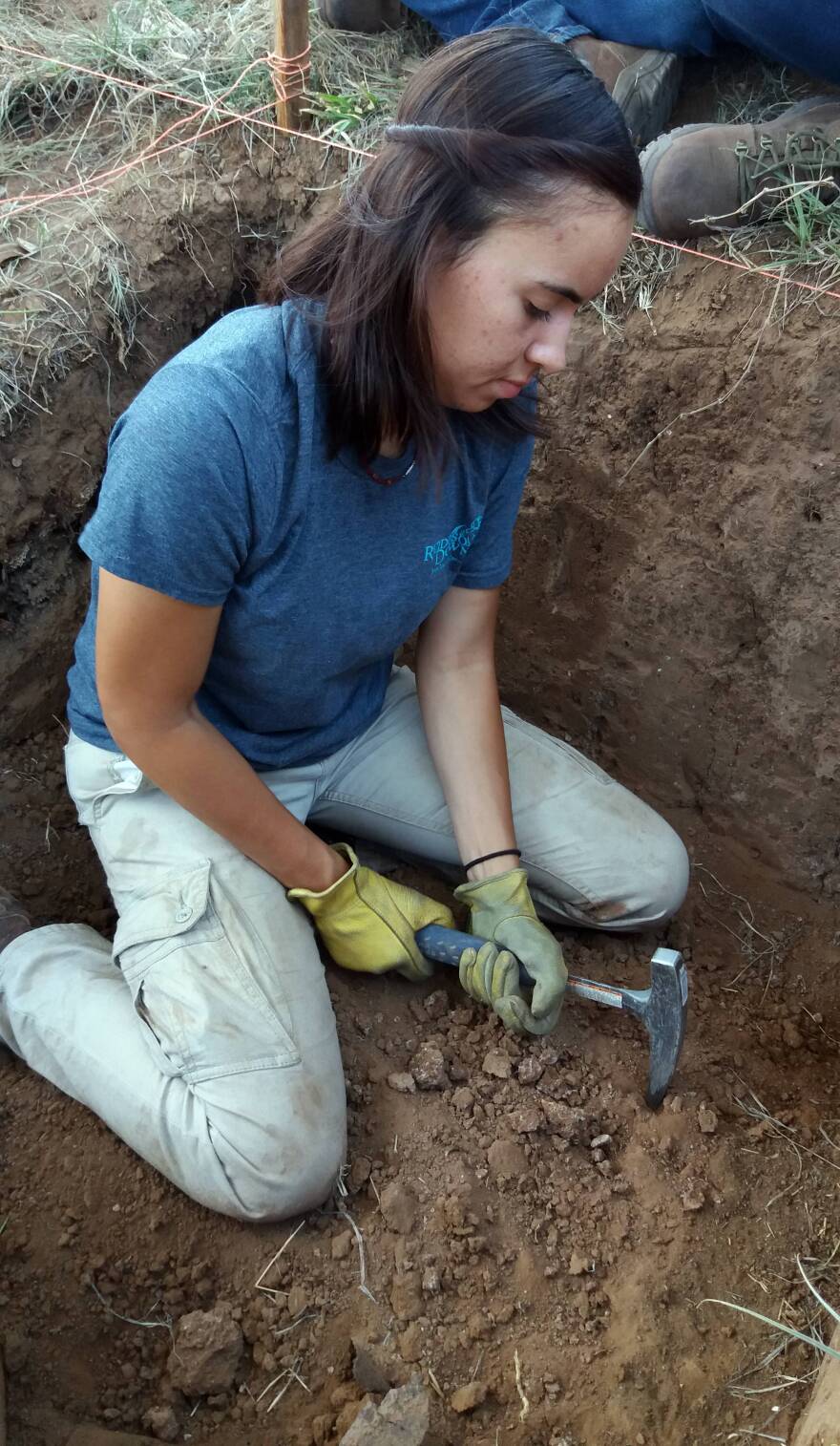http://youtu.be/BdZtguiaZd4
In the Lincoln National Forest, amateur archaeologists are on a treasure hunt–and they’re finding historical gold in the form of clothing, shell casings and even license plates.
It’s part of a heritage tourism program the U.S. Forest Service runs called Passport in Time. Volunteers work with archaeologists and historians on public lands nationwide to survey, excavate and restore sites of historical or cultural value.
That includes the Baca Campground named after Saturnino Baca, a Civil War captain and father of Lincoln County.
Assistant Forest Archaeologist Mark Gutzman heads the effort in Lincoln National Forest.
As part of President Franklin D. Roosevelt’s New Deal, Congress established the Civilian Conservation Corps in 1933. The work relief program gave millions of young, unmarried men jobs doing forest-related projects.
Gutzman said a company of CCC men finished construction on Camp Baca in 1934 and worked that summer.

“They started doing projects like erosion control, building phone lines, building roads, doing various projects around here. And they only worked for one summer and then for some reason the Forest Service condemned the site for winter living even though they constructed during the winter. So, they were moved to another location," Gutzman said.
The camp stayed empty until 1936 when the National Youth Administration set up an education camp for unemployed girls.
Renamed after the town next door, Camp Capitan taught girls from rural New Mexico and Arizona skills like sewing and embroidery, among other subjects.
“White Sands National Monument, they made all the tin punch light fixtures that are there currently today. They made the state flags for all government and school buildings. They made bedding and clothing for the children’s hospital," Gutzman said. "So, they did a lot of different kind of things and in the similar way of the CCC, they got paid money, they kept some, they sent the rest of it to their families.”
The girls also built a fireplace and chimney and dug their own swimming pool. Camp Capitan closed in 1940 due to lack of funds, according to Gutzman.

After the bombing of Pearl Harbor, Gutzman said the government relocated Japanese railroad workers and their families from Clovis to the site for their protection. He said about 30 people lived there until they were transferred to internment camps elsewhere in 1942.
With all that history, Gutzman said the site still has stories to tell.
That’s where outdoor enthusiasts come in. For every project they complete, volunteers receive a stamp in their PIT passports and make the PIT Honor Roll after volunteering at least 500 hours.
About 20 people helped Forest Service officials scan for history at Baca. Volunteers brought their own metal detectors to pinpoint the location of artifacts before digging them up.
Retired postal worker Rhonda Fore and her husband Roy drove from Mississippi to pitch in. They travel the country doing PIT projects and have completed more than 50 since 2002. From metal-detecting to paleontology, Fore said each project has its own set of challenges.
“You take the knowledge you know and then you go to a new PIT project, a new place and you roll out and you say ‘Oh my gosh, where is this and where would they have camped and where would they have gotten water and what were they doing here?" Fore said. "And you take your past knowledge and you bring it here and it’s a puzzle. You’re trying to figure out what happened and it’s just putting a puzzle together."
After she detected something below ground, Fore shoveled a square patch of Earth. A smaller metal detector helps her pinpoint items in the dirt. Sometimes they turn out to be only pull-tabs or bottlecaps. But the mystery and the camaraderie, Fore said, are part of the fun.
“I found a 1928 penny this morning. I have found a buckle, a zipper, all kinds of things that I’m not sure what is. A razor strap, took us a while to get that together, toothpaste tubes of all things. A lot of things– a thimble. So, it’s fascinating. You just never know what you’re going to find," Fore said.
The project doubled as an opportunity for local indigenous members to learn about excavation. Students from the Mescalero Apache tribe visited Baca as part of a summer youth program.
Ember Cervantes, a 2019 Tularosa High School graduate, said it’s her first encounter with archaeology.
“I’m just learning it today and I think it’s a great opportunity for the rest of the students to learn as well. It’s something different. It’s something that we don’t get to do all the time. We’ve never actually spoken to an archaeologist or learned about their career field so this is pretty cool," Cervantes said.
On her first attempt, Cervantes excavated what might have once been a medicine jar. She said she enjoyed learning about the history of a campground that also shares native heritage.
“I think it’s nice and it’s pretty cool to learn about my history and my ancestor’s history or the people that were around before I was. It’s nice to know how they lived, what they used, how they survived," Cervantes said. "It’s definitely mind-blowing at times whenever you find cool artifacts like this and you actually get to be hands-on and dig in the sites and stuff.”
For these volunteers, citizen science not only blows minds, it also blows the dust off the buried past.



